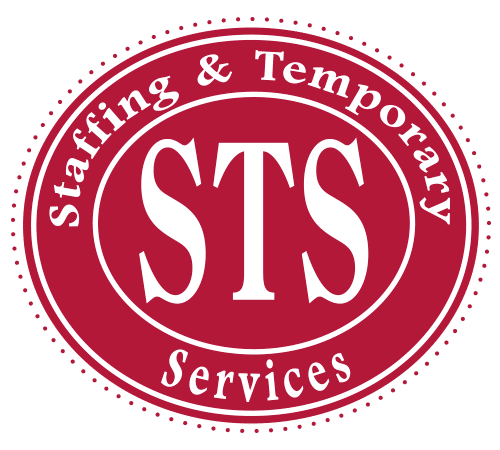In the world of job searching, personal connections can often be the key to obtaining strong job references.
While it’s important to have professional references from supervisors or colleagues in your field, personal references can provide a unique perspective that highlights your character and work ethic.
The Power of Personal Contacts
These references can come from family friends, community leaders, or professors who have seen your growth and potential firsthand.
One example of the power of personal contacts is Sarah, a recent college graduate seeking a position in customer service.
She reached out to her former professor, Dr. Johnson, who had mentored her throughout her academic journey.
Dr. Johnson was able to speak to Sarah’s dedication, strong communication skills, and ability to problem-solve, all of which were essential for a customer service role.
By leveraging a personal connection, Sarah was able to secure a glowing reference that set her apart from other candidates.
When approaching personal contacts for a reference, it’s important to be respectful of their time and clearly articulate why you believe they would be a valuable reference.
In your request, highlight specific qualities or experiences you would like them to highlight and offer to provide any necessary information or documents to make the process as seamless as possible. Remember to always express your gratitude for their willingness to vouch for you.
Leveraging Professional Relationships
In addition to personal contacts, professional relationships can be a valuable resource for job references. These relationships can include former supervisors, colleagues, or even clients who can speak to your skills, achievements, and overall performance in the workplace. These references carry weight as they can provide a detailed insight into your professional abilities and how you interact with others in a work setting.
For example, let’s consider Mark, who has been working in the manufacturing industry for several years.
When seeking a new job in the same field, Mark reached out to his former supervisor, Mr. Davis, with whom he had consistently exceeded expectations and delivered exceptional results.
Mr. Davis’s reference not only highlighted Mark’s technical skills and attention to detail but also emphasized his ability to work well with a team and adapt to new challenges.
By leveraging a strong professional relationship, Mark was able to showcase his expertise and secure a reference that spoke to his competency in the manufacturing industry.
When approaching professional contacts for a reference, it’s crucial to maintain a strong rapport throughout your career. Stay in touch, provide updates on your professional achievements, and offer your assistance whenever possible. This way, when the time comes to ask for a reference, your professional contacts will have a clear understanding of your capabilities and be more willing to support your endeavors.
Nurturing Industry Connections
Building connections within your industry can open doors to new job opportunities and provide valuable job references. These connections can be established through industry-specific events, networking platforms, or professional organizations. By actively participating in the industry, you can forge relationships with professionals who can vouch for your skills and expertise.
For instance, consider Anna, who works in the administrative field and is seeking new opportunities.
She decides to attend a regional conference for administrative professionals, where she meets several individuals who specialize in her desired field.
Anna takes the opportunity to engage in meaningful conversations, share her experiences, and exchange contact information.
Over time, Anna nurtured these industry connections by attending networking events, participating in online forums, and offering her expertise whenever possible.
When the time comes to seek job references, Anna has a network of professionals who know her work ethic, skills, and character. These industry connections can speak to her ability to handle challenging administrative tasks, her proficiency with various software programs, and her meticulous attention to detail. With strong industry references, Anna is able to strengthen her applications and showcase her commitment to her field.
Building Online Presence and Reputation
In today’s digital age, an online presence can greatly impact your job search and the quality of your references. Many employers and recruiters turn to social media platforms, such as LinkedIn, to evaluate candidates and gather additional information beyond their resumes. By building a robust and professional online presence, you can enhance your chances of securing strong job references.
Start by optimizing your LinkedIn profile, ensuring that it reflects your skills, experiences, and accomplishments. Connect with professionals in your industry, engage in relevant groups, and share insightful content to establish yourself as a thought leader. Regularly update your profile with new achievements or projects you have completed, and don’t forget to request recommendations from colleagues or supervisors who can vouch for your abilities.
Additionally, consider creating a personal website or portfolio to showcase your work samples, projects, or testimonials from clients or colleagues. This online platform allows you to take control of your narrative and present yourself in a professional and polished manner.
By investing time and effort into building a strong online presence, you not only increase your chances of attracting potential employers but also provide a platform for your references to support and endorse you. Employers who see a cohesive and well-curated online presence will be more inclined to trust the references you provide.
Beyond Traditional References: Testimonials and Reviews
In some cases, traditional references may not be available or may not fully capture your skills or character. In such situations, testimonials and reviews can serve as powerful alternatives that provide prospective employers with insights into your capabilities and work ethic.
If you have worked as a freelancer, or consultant, or have had clients in your previous roles, reach out to them and ask if they would be willing to provide a testimonial or review of your work.
These testimonials can highlight your ability to meet deadlines, communicate effectively, and deliver high-quality work. Many potential employers will appreciate the transparency and unbiased opinions that testimonials can provide.
Additionally, consider utilizing online platforms that allow individuals to review and rate professionals in specific industries. For example, in the customer service field, there are websites where customers can leave reviews and ratings about their experiences with employees. If you have received positive feedback from customers in the past, leverage these reviews to showcase your exceptional customer service skills.
By thinking outside the box and considering alternative reference options, you can provide prospective employers with a well-rounded picture of your capabilities and the positive impact you can make in their organization.
Good References Make a Difference
Obtaining strong job references is a critical aspect of the job search process, regardless of the industry you are in. By strategically selecting the right references, nurturing professional relationships, leveraging personal contacts, building an online presence, and exploring alternative options like testimonials or reviews, you can significantly enhance your chances of securing your dream job.
Remember, the key to successful job references lies in thoughtful preparation, consistent cultivation of relationships, and clear communication. Take the time to identify the individuals who can best vouch for your skills and character, and proactively engage with them throughout your career. By incorporating these strategies into your job search efforts, you will gain a competitive edge in the Administrative, Consumer Goods, Customer Service, Manufacturing, Retail, Seasonal, and Warehousing sectors, ultimately revolutionizing your approach to finding the right job.




